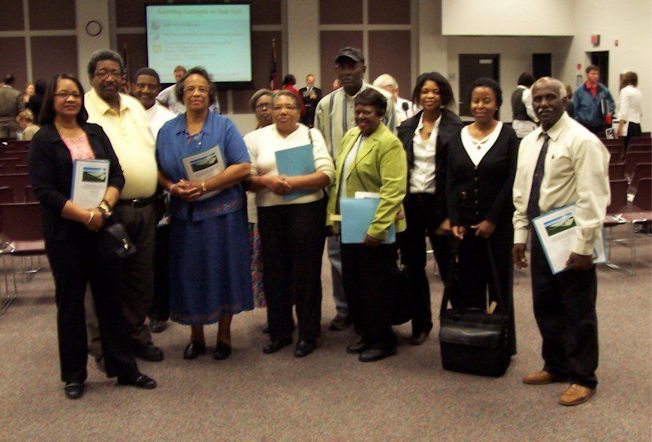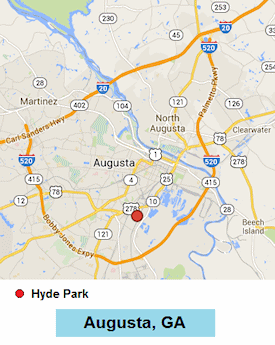|
|
 |
BREDL Chapter: Concerned Citizens of Shell Bluff |
The United States Environmental Protection Agency established the Office of Environmental Justice in 1992 because all Americans regardless of race, color, national origin, or economic circumstance should be able to live in a clean, healthy environment. |
|
Nov. 04, 2019: Buckingham, VA - Today Blue Ridge Environmental Defense League and its Buckingham Chapter, Concern for the New Generation, released a new report: "Union Hill: Real Property, Racism and Environmental Justice," which reveals a history of subversive policies, in Virginia and nationwide, which severely limit the ability for African Americans to build wealth. The context for the study is Virginia 400, marking the history of the slave trade in the United States. From 250 years of slavery, 100 years of Jim Crow laws to the continued subversive policy of siting toxic polluting facilities in environmental justice and other marginalized communities, African Americans and those who live in poverty have been relegated to less than second class citizenship. |
|
Calls for Prompt Action to Evacuate Remaining Residents Sept. 3, 2014: The Blue Ridge Environmental Defense League has called upon officials in Augusta to take immediate steps to move the families still living in the contaminated Hyde Park neighborhood to safer housing. In a letter addressed to the mayor, Charles Utley, Augusta resident and Campaign Director for BREDL, said, “The residents Hyde Park seek only justice and fulfillment of promises made. We are appealing to you to use the power of your office to protect public health and safety. We started this project, let’s finish it.”
|
 In 1969 the Richmond County Health Department advised residents of Hyde Park their well water was unsafe because of industrial pollution. Four decades later, relocation of the community was finally approved. However, only half of the 130 families have been moved to safety. The video essay, “Waiting in a Cesspool” tells the story of those who have been left behind. Hyde Park residents seek only justice and fulfillment of promises made.
|